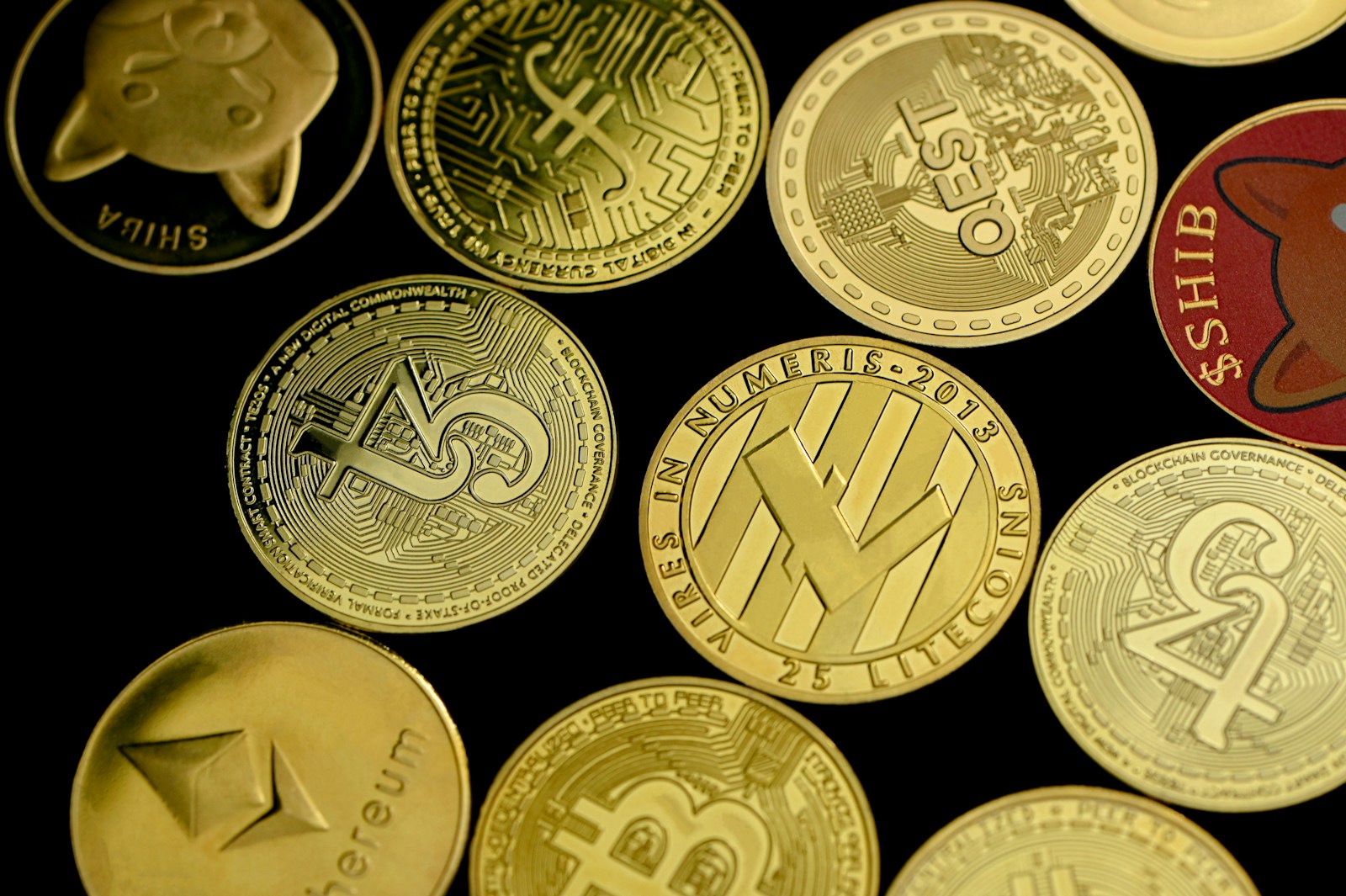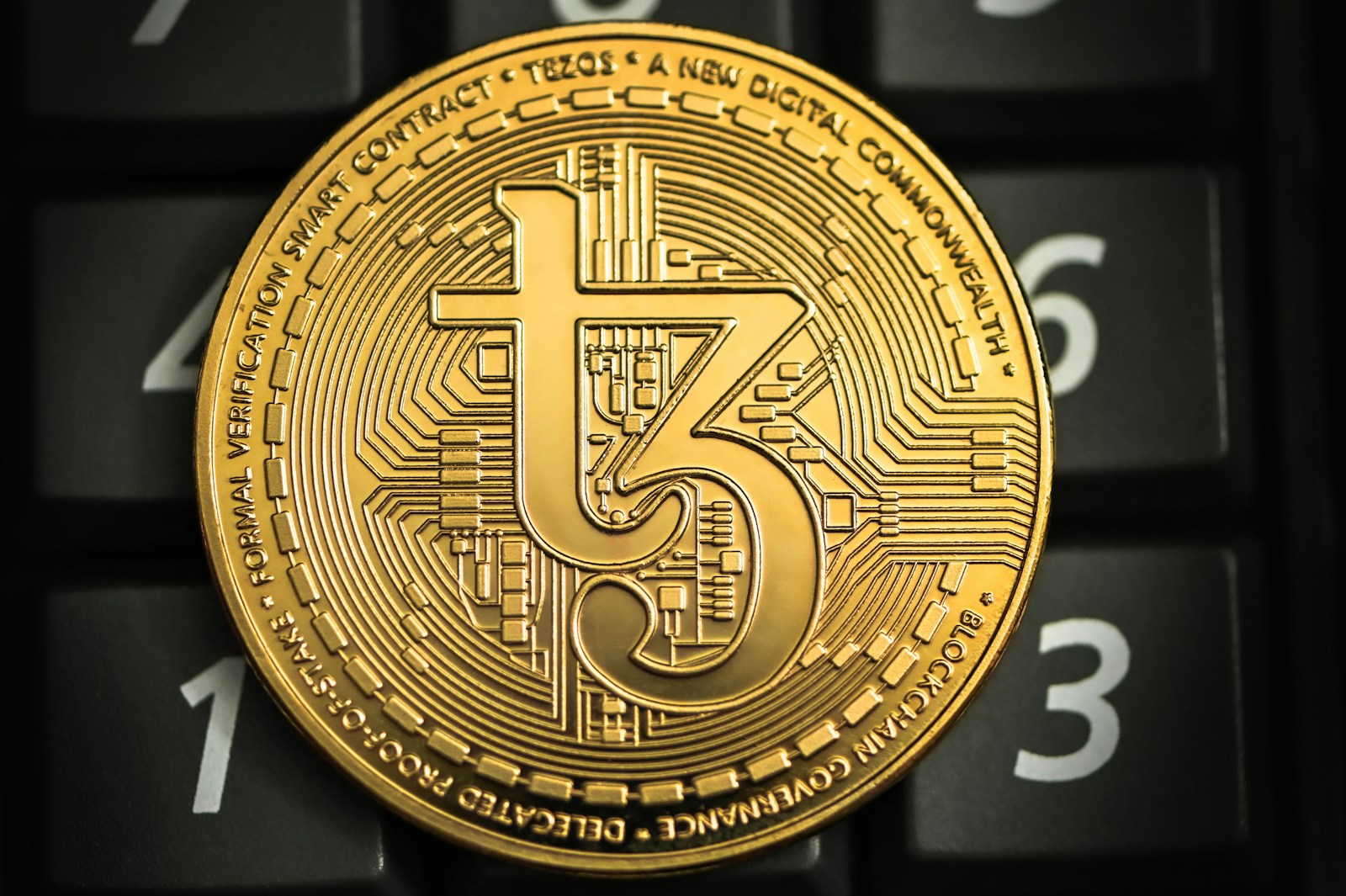
As one of the global financial centers, Hong Kong's cryptocurrency market has attracted the attention of many investors and organizations. With the expansion of market size and increase in trading volume, understanding the information related to cryptocurrency trading in Hong Kong has become an important need for investors. In this article, we will discuss the key players, market characteristics, cryptocurrency types, trading platform options, trading procedures, security measures and legal regulation of the Hong Kong cryptocurrency market to help investors make informed decisions in this fast-growing market.
Hong Kong's cryptocurrency market is known for its high liquidity and well-established regulations. Market participants include individual investors, institutional investors and trading platforms. When choosing a trading platform, investors should consider factors such as security, transaction fees and the types of cryptocurrencies supported. This article will also introduce the detailed steps and transaction security measures for trading cryptocurrencies in Hong Kong, and analyze the risks and rewards of cryptocurrency investment to help investors maximize their returns in the Hong Kong cryptocurrency market.
Hong Kong Cryptocurrency Market Overview
As an international financial center, Hong Kong's cryptocurrency market is growing rapidly and has considerable potential. As global interest in cryptocurrency continues to grow, Hong Kong has become one of the key hubs for cryptocurrency trading in Asia.
Market Size and Volume
According to the latest data, the cryptocurrency market in Hong Kong has reached a size of several billion dollars. This is mainly due to Hong Kong's excellent financial infrastructure and open market environment. Below are some of the key figures of Hong Kong's cryptocurrency market in recent years:
| years | Market Size ($ billion) | Average daily trading volume ($ billion) |
|---|---|---|
| 2019 | 20 | 5 |
| 2020 | 35 | 10 |
| 2021 | 50 | 15 |
The main participants
There are many participants in the cryptocurrency market in Hong Kong, mainly including the following categories:
- Individual investors:This is one of the main drivers of the market, with many individual investors bullish on the potential for high returns from cryptocurrencies.
- Institutional investors:As the market matures, more and more institutional investors, such as hedge funds and asset managers, are getting involved in cryptocurrency trading.
- Trading platforms:There are several well-known cryptocurrency trading platforms in Hong Kong, such as Binance and Huobi, which provide investors with convenient trading services.
- Regulators:Regulators such as the Hong Kong Monetary Authority (HKMA) and the Securities and Futures Commission (SFC) monitor the market to ensure its legitimacy and transparency.
Market Characteristics
The cryptocurrency market in Hong Kong is characterized by the following key features:
- High mobility:Thanks to Hong Kong's international financial status, the market is very liquid and trading is very active.
- The statute is sound:Hong Kong has a relatively well-established regulation of the cryptocurrency market, which helps to protect the interests of investors.
- Technological innovation:Hong Kong's financial technology (FinTech) is growing rapidly, with many innovations being applied to cryptocurrency trading.

Common Cryptocurrency Types
Bitcoin (BTC)
Bitcoin is the world's first and most recognizedEncryption CurrencyIt was founded by Satoshi Nakamoto in 2009. Its main feature is that it is decentralized, i.e. not controlled by any government or financial institution. Bitcoin uses blockchain technology to record all transactions, and the total supply is limited to 21 million pieces. Due to its scarcity and security, Bitcoin is widely regarded as digital gold.
Ethereum (ETH)
Ether is another very popular cryptocurrency, launched by Vitalik Buterin in 2015. Unlike Bitcoin, Ether is more than just a digital currency; it is an open blockchain platform that allows developers to build and deploy decentralized applications (DApps) on it. Ether's smart contract capabilities make it a cornerstone of the decentralized finance (DeFi) and non-identical token (NFT) markets.
Ripple (XRP)
Ripple was created by Ripple Labs in 2012 to facilitate global cross-border payments. Unlike Bitcoin and Ether, XRP is not based on blockchain technology, but instead uses a technology called the Ripple Protocol Consensus Algorithm (RPCA). This gives XRP a significant advantage in terms of transaction speed and cost, making it particularly suitable for transferring funds between banks and financial institutions.
Litecoin (LTC)
Created by Charlie Lee in 2011, Litecoin is a lightweight version of Bitcoin. Its main purpose is to provide faster transaction confirmation times and lower transaction fees. The total supply of Litecoin is 84 million pieces, which is four times that of Bitcoin. Due to its similar technical basis to Bitcoin, Litecoin is often used as a testing ground for new technologies.
Bitcoin Cash (BCH)
Bitcoin Cash is a fork of Bitcoin, launched in August 2017. It was created to solve the scalability problem of Bitcoin by increasing the block size to increase transaction speeds and reduce transaction fees. Although Bitcoin Cash shares the same historical data as Bitcoin, they differ significantly in terms of their technical routes and community support.
Polka (Polkadot, DOT)
Launched in 2020 by Ethernet co-founder Gavin Wood, Boka is a multi-chain blockchain protocol designed to enable interoperability between different blockchains. Boka allows many blockchains to run in parallel on its network and be able to communicate and share data with each other. This makes Boka a very flexible and powerful blockchain solution.
Stablecoins
A stablecoin is a type of cryptocurrency that is pegged to a fiat currency, such as the US dollar, and has a relatively stable value. Common stablecoins include USDT (Tether), USDC (USD Coin), and DAI. The main purpose of stablecoins is to provide a means of storing value that is not subject to the volatility of the cryptocurrency market and can be used for everyday transactions and payments.
How to Choose the Right Cryptocurrency Trading Platform
1. Security and Reputation
When choosing a cryptocurrency trading platformsafetyThis is the primary consideration. The platform should provide multi-level security measures, such as double authentication (2FA), cold wallet storage, DDoS protection and so on. In addition, the reputation of the platform is also very important and can be judged by checking user reviews and professional evaluations.
2. Transaction fees
Trading fees vary from platform to platform, including transaction fees, withdrawal fees, deposit fees, and so on. Below is a table comparing the fees of common trading platforms:
| Platform name | Transaction Fee | Withdrawal Fee | Deposit Fees |
|---|---|---|---|
| Platform A | 0.1% | 0.0005 BTC | Free of charge |
| Platform B | 0.2% | 0.001 BTC | 1% |
| Platform C | 0.15% | 0.0008 BTC | Free of charge |
3. Types of cryptographic currencies supported
Different platforms support different types of cryptocurrencies. When choosing a platform, you should make sure that it supports the cryptocurrency you are interested in. For example, Bitcoin (BTC), Ethereum (ETH), and Ripple (XRP) are mainstream cryptocurrencies.
4. user interface and operating experience
The platform's user interface should be simple and easy to use. A good user experience will increase trading efficiency and reduce the risk of errors. It is recommended that you choose a trading platform that offers a mobile application so that you can trade anytime, anywhere.
5. Customer Service
Quality customer service is crucial in resolving issues during the trading process. When choosing a platform, you should consider the customer service channels it offers, such as online customer service, phone support, email, etc. A quick response and professional service can effectively resolve queries and problems. Quick response and professional service can effectively solve users' questions and problems.
6. Regulatory compliance
In Hong Kong, choosing a compliant trading platform is particularly important. The platform should comply with the relevant laws and regulations of Hong Kong and be recognized and licensed by the relevant regulatory bodies. This ensures the safety of your funds and personal information.

Steps to buy and sell cryptocurrencies in Hong Kong
1. register and certify accounts
First of all, you need to choose a suitable cryptocurrency trading platform and register an account. Common platforms include Binance, Coinbase and Bitfinex. The registration process usually requires personal information such as email address and cell phone number. Once the registration is complete, the platform will ask for a verification of identity (KYC), which usually involves uploading proof of identity and a selfie.
2. Recharge funds
After your account has been verified, the next step is to top up funds to the trading platform. In Hong Kong, common funding methods include bank transfers, credit card payments and e-wallets (e.g. PayPal). After choosing a suitable method and completing the fund transfer, you can start trading cryptocurrencies.
3. selecting and purchasing cryptocurrencies
Once you've recharged your account, you can choose the cryptocurrency you want to buy on the trading platform. Currently, the most common cryptocurrencies in the market are Bitcoin, Ethereum and Ripple. When choosing a cryptocurrency, it is recommended to refer to market trends and professional analysis, and make a decision based on your personal risk tolerance.
4. Setting up trade orders
After choosing a cryptocurrency, you can set up a trade order to complete the purchase. Common trading orders are Market Order and Limit Order. A market order is to buy or sell cryptocurrencies immediately at the current market price, while a limit order is to set a desired buy or sell price, and the trade will be executed automatically when the market price reaches the set value.
5. Secure storage of cryptographic currency
After the transaction is completed, it is recommended to transfer the purchased cryptocurrency to a personal wallet for safe storage. There are two common types of cryptocurrency wallets: software wallets and hardware wallets. A software wallet can be installed on a computer or cell phone, while a hardware wallet is a physical device designed to store cryptocurrency. In contrast, hardware wallets are more secure.
6. monitoring market dynamics
After completing the purchase of cryptocurrencies, you need to continuously monitor the market dynamics and price changes, and adjust your investment strategy according to the market situation. You can use the charts and data analysis tools provided by the trading platform or refer to professional market analysis reports.
7. cash withdrawals and transfers
When you need to convert cryptocurrency to fiat currency or transfer funds to others, you can withdraw and transfer funds through the trading platform. When withdrawing cryptocurrency, select the appropriate withdrawal method and enter the relevant information, and the platform will transfer the funds to the designated bank account or e-wallet according to the selected method.
Security Measures for Cryptocurrency Transactions
Choose a trustworthy trading platform
When buying cryptocurrency in Hong Kong, choose aTrusted Trading PlatformIt is of paramount importance. The platform should have a good reputation, user reviews and security measures. Some of the well-known platforms can be found in the table below:
| Platform name | security measure | Testimonials |
|---|---|---|
| Binance | Double-certified, cold wallet storage | 4.5/5 |
| Coinbase | Dual accreditation, insurance coverage | 4.7/5 |
| Kraken | Double-certified, cold wallet storage | 4.6/5 |
Enable Dual Authentication
Dual Authentication (2FA) is an important measure to protect cryptocurrency accounts. With 2FA enabled, users are required to provide two forms of authentication information, such as passwords and dynamic authentication codes, when logging into their accounts. This can effectively prevent unauthorized login behavior.
Using cold wallets for storage
Cold wallets are a way of storing cryptocurrency offline. Compared to hot wallets (online wallets), cold wallets are more secure because they are not directly connected to the Internet, thus reducing the risk of being hacked. Common types of cold wallets include hardware wallets and paper wallets.
Regularly updated passwords
Regularly updating your password is a basic measure to protect the security of your account. It is recommended to useStrong passwordThe passwords include upper and lower case letters, numbers, and special characters, and you should avoid using the same passwords as for other accounts.
Be wary of phishing attacks
Phishing attacks are one of the common tactics used by hackers to trick users into providing sensitive information by disguising themselves as legitimate websites or emails. Users should be vigilant and avoid clicking on suspicious links or providing personal information.
Back up your wallet regularly
Regularly backing up your wallet can prevent loss of assets due to equipment failure or loss. Backups should be stored in a secure place, such as an offline storage device or a paper backup.
Use reliable anti-virus software
Installing and regularly updating anti-virus software can help detect and prevent malware attacks. Antivirus software should have real-time monitoring capabilities and be able to detect all types of threats.
Monitor Account Activity
Regular monitoring of account activity allows you to detect abnormal behavior and take appropriate action. Most trading platforms provide transaction notification function, users can set up transaction alerts to keep abreast of account dynamics.
Law and Regulation of Cryptocurrency in Hong Kong
Regulatory Authority
In Hong Kong, the regulation of cryptocurrencies is primarily governed byHong Kong Securities and Futures Commission(The SFC regulates financial activities involving cryptocurrencies, including cryptocurrency exchanges and related investment products.
regulatory framework
Hong Kong's regulatory framework for cryptocurrencies relies heavily on existing securities and financial laws and regulations.The SFC issued a series of guidelines in 2018 clarifying how certain cryptocurrencies should be treated as securities and regulating related trading practices. These guidelines require cryptocurrency trading platforms to be properly licensed and to comply with anti-money laundering (AML) and counter-financing of terrorism (CFT) requirements.
License application
Under the SFC's requirements, any company operating a cryptocurrency exchange must apply for and receive theType 1 (Securities Trading) and Type 7 (Provision of Automated Trading Services) LicensesThese licenses ensure that the exchange meets stringent financial and operational standards and protects the interests of investors. These licenses ensure that the exchanges meet stringent financial and operational standards and protect the interests of investors.
Anti-Money Laundering and Countering the Financing of Terrorism
Hong Kong has stringent anti-money laundering and counter-terrorism financing regulations. All cryptocurrency trading platforms must implementCustomer Due Diligence (CDD)andContinuous monitoringprocedures to ensure the legitimacy and transparency of transactions. In addition, platforms are required to submit regular reports to the SFC detailing their anti-money laundering and counter-terrorism financing measures and their implementation.
investor protection
To protect investors, the SFC requires cryptocurrency trading platforms to provide adequate risk disclosure and ensure that investors understand the risks of cryptocurrency investments. In addition, platforms are required to establishInvestor Compensation FundThis is to protect investors' funds in the event of financial difficulties of the platform.
Liability
In Hong Kong, unauthorized operation of cryptocurrency exchanges or issuance of cryptocurrency-related products may face serious legal consequences, including fines and imprisonment.The SFC regularly monitors market dynamics and conducts severe crackdowns on non-compliance in order to maintain a fair and orderly market.
Risk and Return Analysis of Cryptocurrency Investment
Risk Analysis
Market Volatility
The cryptocurrency market is known for its high volatility. Prices can fluctuate dramatically over short periods of time, which means that investors can be exposed to significant price risk. This volatility can lead to both high returns and severe losses.
Technology Risk
Cryptocurrencies rely on blockchain technology, which, while highly secure, is not completely invulnerable. Hacking attacks, smart contract vulnerabilities and other technical issues can cause losses to investors' assets.
Regulatory Risk
Regulatory policies on cryptocurrencies are inconsistent from country to country and are subject to change at any time. In Hong Kong, although cryptocurrency trading is currently legal, future changes in regulatory policy may affect the market environment and hence the interests of investors.
Liquidity risk
Certain cryptocurrencies have low market liquidity, which means they may be difficult to buy or sell quickly. This lack of liquidity can lead to sharp price fluctuations, further increasing investment risk.
Return Analysis
High Return Potential
Despite the high risk, the cryptocurrency market also offers opportunities for high returns. Many early investors have made strong returns in major cryptocurrencies such as Bitcoin and Ether. This high return potential has attracted a large number of investors to the market.
Diversified Investment Opportunities
The cryptocurrency market offers a wide range of investment products, including spot trading, futures trading and decentralized financial (DeFi) products. These diverse investment opportunities allow investors to choose and allocate according to their risk tolerance and investment objectives.
Innovation and Technological Advancement
The cryptocurrency market is at the forefront of technological innovation, with many emerging technologies and applications (such as blockchain, smart contracts and decentralized applications) providing new investment opportunities for investors. These technological advances may offer significant market potential and returns.
Conclusion
Overall, cryptocurrency investment is characterized by high risk and high return. When investing in cryptocurrency, investors should fully understand the volatility, technical risk, regulatory risk and liquidity risk of the market. At the same time, they should also recognize the potential for high returns and diverse investment opportunities offered by the cryptocurrency market. Through prudent risk management and sound investment strategies, investors can realize the potential for great returns in this emerging market.
Frequently Asked Questions
How big is the cryptocurrency market in Hong Kong?
The cryptocurrency market in Hong Kong has reached a size of billions of US dollars and the average daily trading volume is increasing. This is largely due to Hong Kong's financial infrastructure and open market environment.
Who are the key players in the Hong Kong cryptocurrency market?
The key players in the Hong Kong cryptocurrency market include individual investors, institutional investors, trading platforms and regulators. Together, these participants have contributed to the development and maturity of the market.
What are the steps to buy cryptocurrency in Hong Kong?
The steps to buy cryptocurrencies in Hong Kong include registering and verifying your account, funding your account, selecting and purchasing cryptocurrencies, setting up trade orders, storing cryptocurrencies securely, monitoring the market, and withdrawing and transferring funds.
How to choose the right cryptocurrency trading platform?
Choosing the right cryptocurrency trading platform requires consideration of a number of factors, includingSecurity and ReputationThe company's business model is based on the following factors: transaction fees, types of cryptocurrencies supported, user interface and experience, customer service, and regulatory compliance.
What are the most common types of cryptocurrencies?
Common cryptocurrencies include Bitcoin (BTC), Ethereum (ETH), Ripple (XRP), Litecoin (LTC), Bitcoin Cash (BCH), Polkadot (DOT), and Stablecoins. Stablecoins.)
What security measures should I be aware of when trading cryptocurrencies in Hong Kong?
When trading cryptocurrencies in Hong Kong, you should choose a trusted trading platform, enable dual authentication, use cold wallet storage, update your passwords regularly, be wary of phishing attacks, back up your wallet regularly, use reliable anti-virus software, and monitor your account activity.
What is the regulatory status of cryptocurrency in Hong Kong?
Cryptocurrency regulation in Hong Kong is primarily the responsibility of the Securities and Futures Commission (SFC), which regulates financial activities involving cryptocurrencies, including cryptocurrency exchanges and related investment products. All companies operating cryptocurrency exchanges are required to apply for and obtain Type 1 (dealing in securities) and Type 7 (providing automated trading services) licenses.
What are the risks and rewards of cryptocurrency investing?
Cryptocurrency investments are subject to market volatility, technology risk, regulatory risk and liquidity risk. However, the cryptocurrency market also offers the potential for high returns, diversified investment opportunities and innovative investment opportunities arising from technological advances. Investors should manage their risks carefully and develop sound investment strategies.
Disclaimer: The contents of this article are for informational purposes only and should not be construed as any form of promotion, investment advice, or invitation, solicitation or recommendation of any investment product.
The contents of this article have been reprinted.offensiveIf there is anything wrong, please contact us and we will remove it immediately, thank you.
Readers should make their own assessment and seek professional advice.





